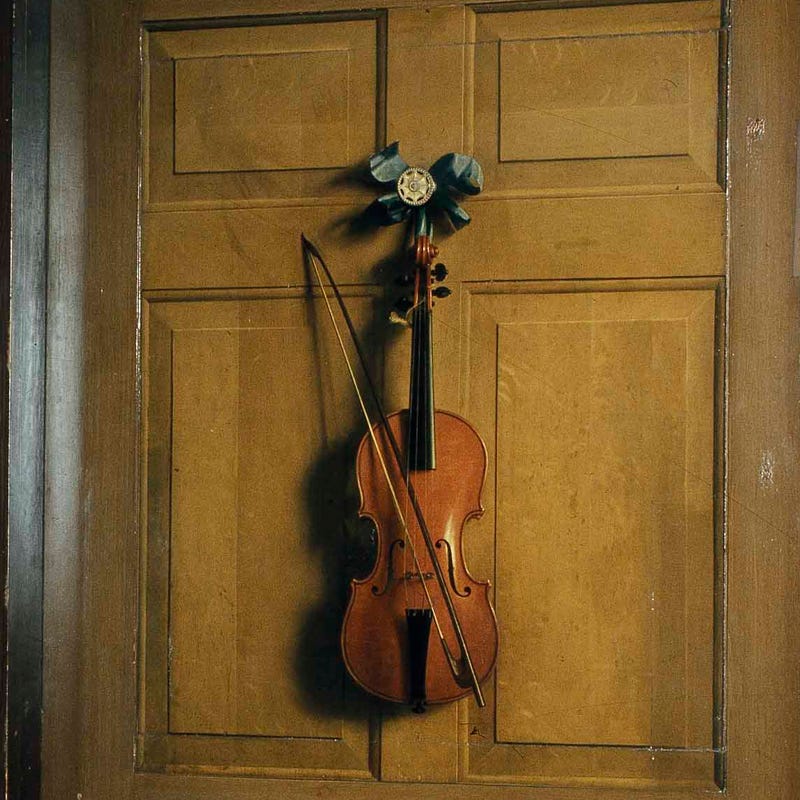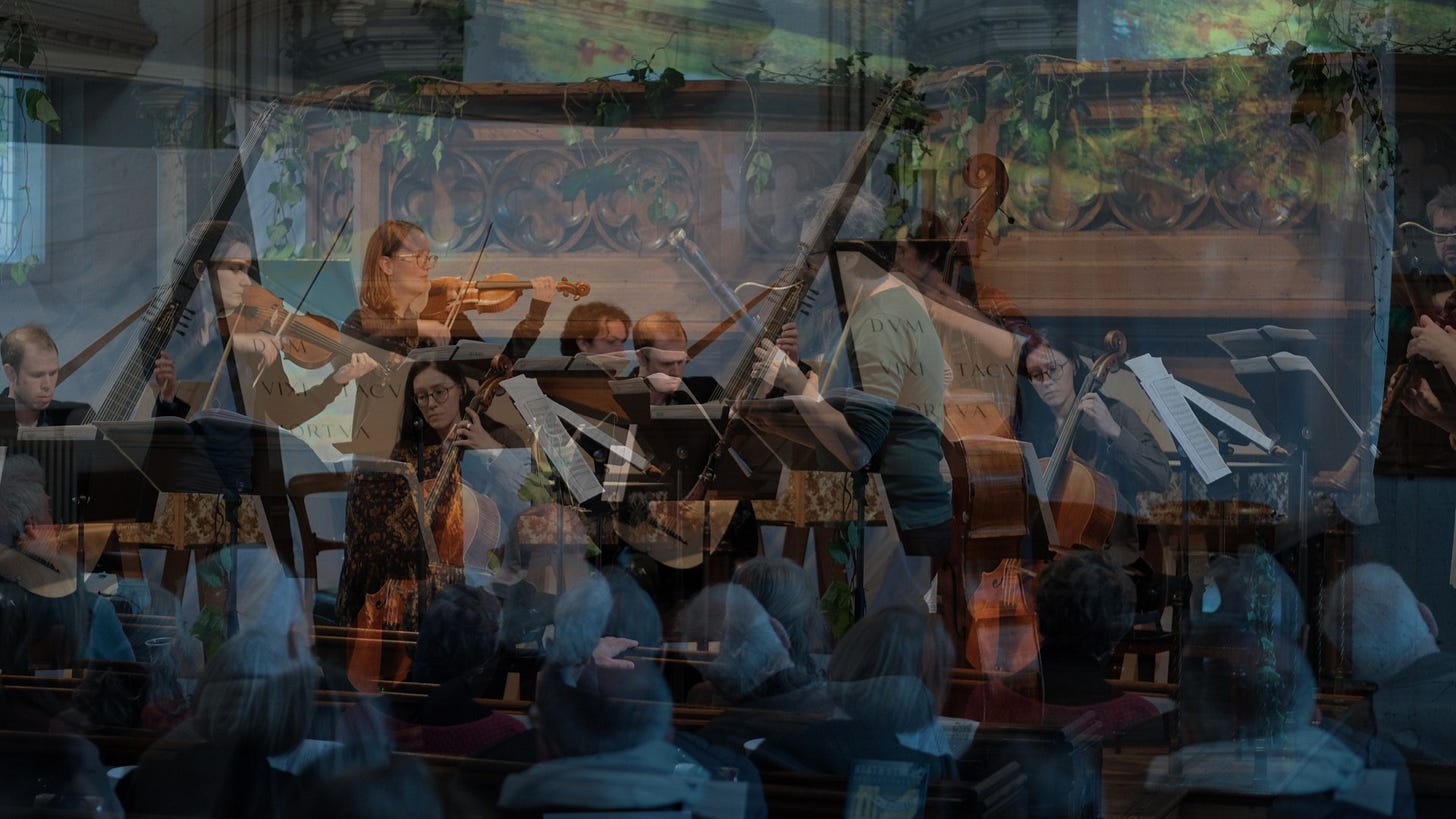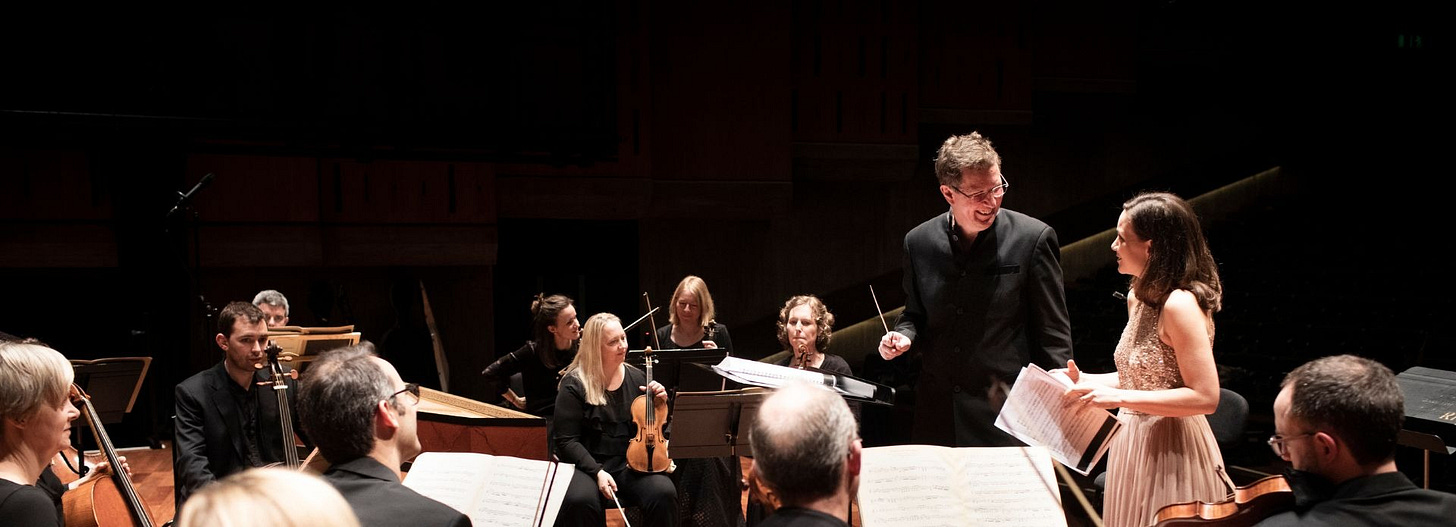Pushing Boundaries: Early Music at its Peripheries
The ever-expanding definition of early music
Views of what counts as early music vary widely. Some believe it spans all music from the Middle Ages to 1750; others think it reaches further, perhaps to the mid-19th century, when modern concert practice began to develop. There can be a presumption that early music must be from a period ‘far enough back’ in history; sometimes this may make it seem detached from us in the present day.
We think the historically informed performance (HIP) movement provides a more helpful (and less limiting) definition. Moving away from categorisation dictated by historical periods, it proposes a shift in focus to the practices and materials from the time the music was written, stripping away layers of veneer to enable fresher, more vibrant interpretations. The UK early music scene bears witness to this richness.
This newsletter aims to shine a spotlight on the varied field of early instrumental music which embodies this expanded definition. An exciting array of concerts coming up over the next month, many presented by Continuo Foundation grantees, pushes the boundaries of our conception of early music.
Whether it’s period instrument performances of Classical or Romantic repertoire, early instruments being used to find new sound worlds for more modern and even contemporary music, or the discovery of music by little-known composers, we hope you will be as inspired as we are by these fascinating explorations.
The Consone Quartet are pushing historical performance right up to the present day in their Barnstorming! tour. On 19 October at Syde Manor, they will be performing a new work for string sextet by Gavin Bryars, The Bridges of Königsberg. Premiered by the ensemble last summer, this is an example of ‘new music for old instruments’, a theme which was explored in our February newsletter.
We caught up with the Quartet’s cellist, George Ross, and you can read more about his musical journey and recent projects in this spotlight interview.
In what will be a busy couple of months for the Quartet, they will also be joining forces with the Istante Collective at the Baroquestock Festival in Hampstead. Their series of concerts entitled Haydn Expanded delves into what was common practice in centuries past - arranging music for different combinations of instruments to explore how this might ‘colour’ and ‘reimage’ music. Oboist Nicola Barbagli writes:
“Paul Wranitzky was Haydn's favourite Vienna Concertmaster and in this exciting project we dive deep into the unusual journey that he took in re-colouring Haydn's masterpieces - his three Op. 71 quartets, expanding them into nonets - alongside music by his contemporaries W.A. Mozart, F. Rosinack and Michael Haydn.”
A storyteller, a musicologist, and a Risio-printed visual guide will help to create an immersive experience enabling the audience to enjoy Haydn’s music from a totally new point of view, alongside works of his contemporaries.
Describing itself as ‘a combo of early-ish music, home-made food and good vibes’, Baroquestock has earnt a reputation as a casual, friendly festival with an emphasis on local community. Enjoy three Haydn Expanded concerts from 18 to 22 September.
With a focus on Mozart and his contemporaries, The Mozartists are enriching and expanding our knowledge through their ongoing exploration of the music of little-known 18th century composer Niccolò Jommelli. You can discover an extraordinary musician hailed during his lifetime as one of Europe’s greatest composers on 18 September at the Wigmore Hall.
"Almost all the composers of that time sound a bit like Mozart, but Jommelli has very much his own voice…He was really forward-thinking in the way the orchestra gets involved in the story, and some of it is searingly intense: almost like 18th-century film music.” - Ian Page
Read more in Continuo Connect’s interview with Conductor and Artistic Director of The Mozartists, Ian Page.
Our playlist for September - ‘Early Music at its Peripheries’ - will take you on a journey to the far corners of the early music world. It looks at how the brilliant, imaginative sphere of instrumental music can expand our perception of what early music can be.
Discover works by little-known composers, hear more familiar pieces performed in eye-opening ways, or listen to some of the music or musicians featuring in concerts this month. We hope this inspires you to reach further into early music, and to check out some upcoming concerts and recent features.
Catch up on recent posts and browse more on the Continuo Connect Substack page.








